Number and combat effectiveness. New problems of the British ground forces
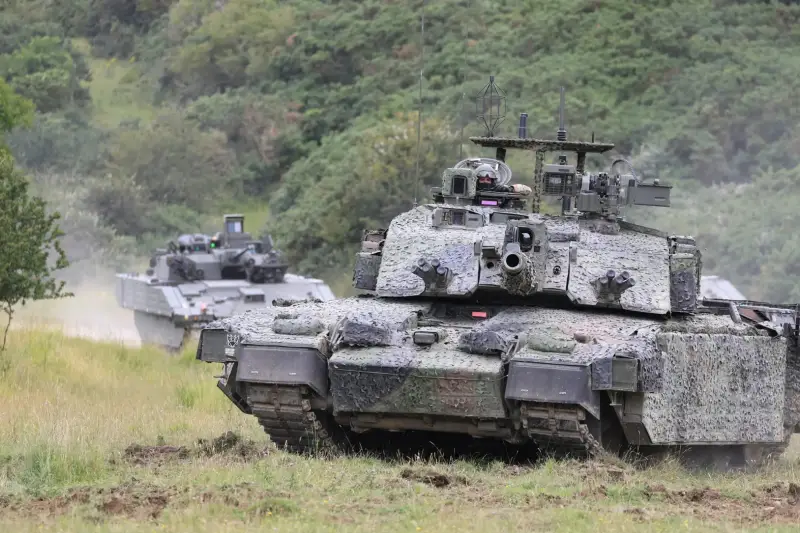
The British armed forces are faced with a number of characteristic problems that not only hinder their development, but also lead to gradual degradation. Due to a lack of volunteers, funding cuts and other factors, the size of the armed forces is constantly decreasing, which leads to a corresponding drop in defense capability. At the same time, there are no opportunities to change the situation for the better.
The downsizing problem
One of the main problems of the British army was recently reported by The Times. From current and former employees of the military department, it received interesting data about the quantitative indicators of the armed forces, as well as about their changes and observed trends. In general, there are no reasons for optimism at the moment, and big problems should be expected in the foreseeable future.
In May last year it became known that the UK Ministry of Defense had prepared a new plan for the development of the armed forces in general and the ground forces in particular. Due to the presence of objective limitations and difficulties, over the next few years it was proposed to reduce the total number of armed forces from the current 150 thousand people. up to 135 thousand. At the same time, the number of ground forces must be reduced from current values to 72 people.
The government subsequently approved a similar reduction. According to the approved plans, by the end of 2025 the number of military personnel in the ground forces will be reduced to 72,5 thousand people. Other types of armed forces will also be reduced, but on a smaller scale. At the same time, it is planned to increase defense spending. By 2030 they should amount to 2,5% of GDP.
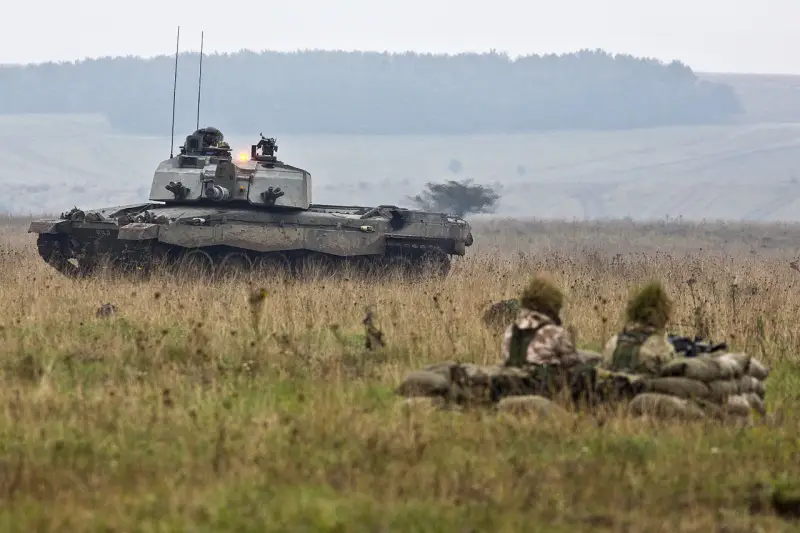
It is curious that the assigned tasks are already being solved, but not by administrative methods, but by natural means. For a number of reasons, the number of armed forces and ground forces is constantly declining. Thus, The Times learned from its sources that over the 12 months, from September 2022 to September 2023, the number of military personnel in the ground forces decreased from 79 people. up to 139 people
The Times calculated what the continuation of such trends could lead to. Thus, in the coming years, the armed forces can reach the target level of 72,5 thousand people, as well as break through it and go down. If current rates are maintained, already in 2026 the size of the army will drop to 67,7 thousand people. This is 40% less than those serving in 2010. Over the next 10 years, this rate of reduction will lead to an army of 52 thousand. How much the country’s combat effectiveness and ability to defend itself will decline is a rhetorical question.
Causes and background
The observed reduction in the British army, which The Times writes about, has the most obvious nature - the number of military personnel leaving service exceeds the number of new volunteers. Moreover, such trends are based on various factors that are a direct consequence of the illiterate and erroneous actions of the military and political leadership of Great Britain in the recent past.
After the end of the Cold War, Britain, like other NATO countries, began to cut its military budget and redirect funds to other tasks. This continued for a long time and led to a real degradation of the armed forces with a decline in their capabilities. The army did not have the opportunity to increase salaries on time and by reasonable amounts, to purchase modern equipment, etc.
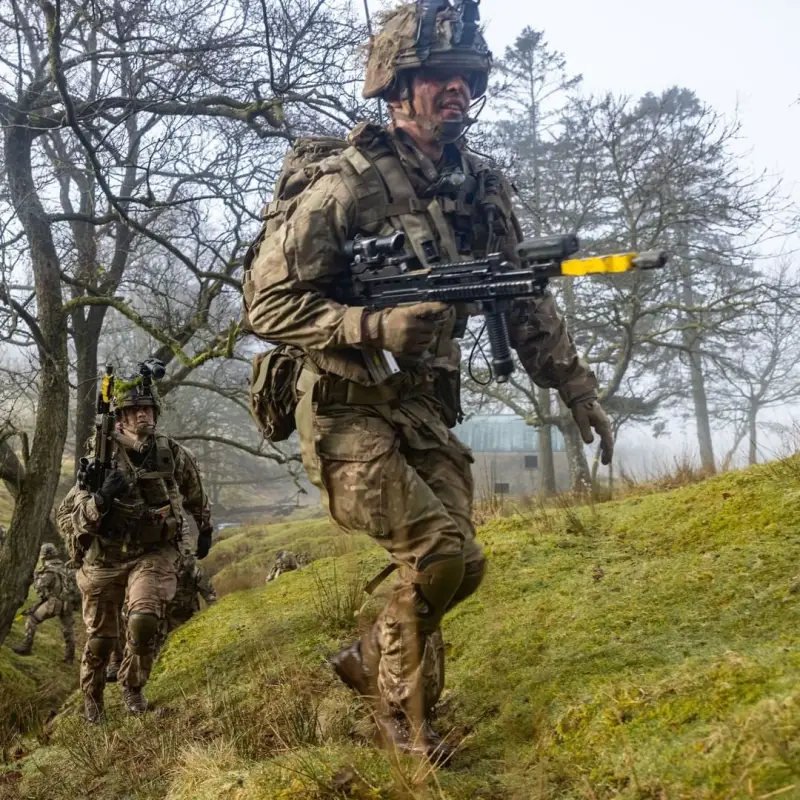
They began to correct the situation only in the mid-1990s under the pretext of “Russian aggression.” However, it was not possible to radically change the situation. Moreover, even now it is necessary to draw up plans to increase costs, reduce the number of personnel, etc. At the same time, the task at hand is extremely difficult, because the army will have to not only increase its potential, but also make up for lost time.
The Times reminds that problems with attracting recruits also began quite a long time ago and may be associated with errors in the army recruitment system. About ten years ago, the task of recruiting new recruits was entrusted to the commercial company Capita. From 2012 to 2022, it received several government contracts for such events, worth more than £1,2 billion.
The contractor failed to cope with the task, and the number of recruits decreased every year. At the end of the tenth years, the inefficiency of the private company was actively discussed at the highest level, and the Ministry of Defense planned to refuse the next contract. However, Capita was able to demonstrate positive trends and received another order in 2020 and continued operations. However, as it now turns out, the situation has not changed fundamentally.
Thus, problems with recruiting personnel, maintaining their numbers and maintaining combat effectiveness are associated with two global factors. The first is a lack of funding in the past, the consequences of which are still evident today. The second is the lack of great interest in military service among the population. Potential recruits are put off by the specifics of the service, not the highest pay, the size of the social package, etc. In addition, the responsible organization simply cannot interest future soldiers.
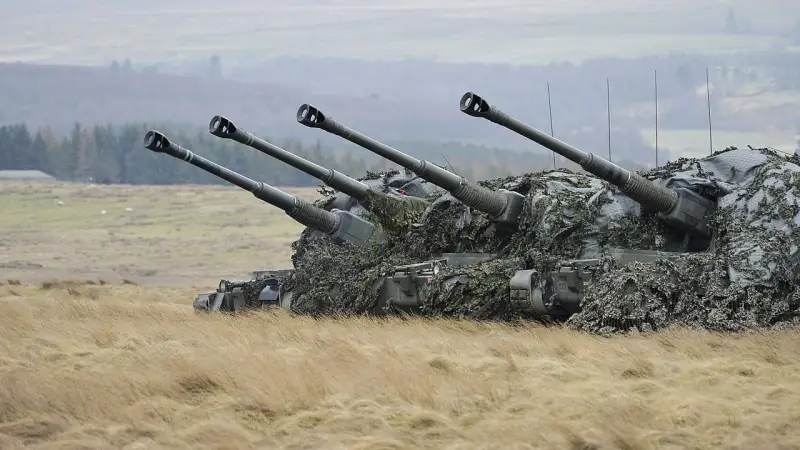
Current state
It should be noted that the British ground forces, like the armed forces as a whole, are distinguished not only by their limited number of personnel. Their organizational structure and equipment also leave much to be desired. As a result of all this, big questions arise about the combat effectiveness of such an army and its potential in solving expected tasks, both in peacetime and in wartime.
According to The Military Balance 2023 directory, published about a year ago (the new edition is just being prepared for publication), the total number of personnel in the British Armed Forces at the beginning of last year exceeded 150 thousand people. Almost 72 thousand people. was in reserve. There were 79 people in the ground forces. 350 and 33,75 thousand people served in the Royal Navy and Air Force, respectively.
The basis of the ground forces are three divisions of different types. The 1st Division contains light mechanized units, the 3rd Division includes armored and other units, and the 6th Division is actually a special operations force with the corresponding units. The ground forces also include a number of auxiliary units and formations, etc. Army units receive support from the Unified Helicopter Command.
In the recent past, the British Army did not have the largest fleet of military equipment. Material and military assistance to the Kyiv regime in 2022-23. seriously affected its quantitative and qualitative indicators. To one degree or another, the number of equipment of almost all main classes has decreased.
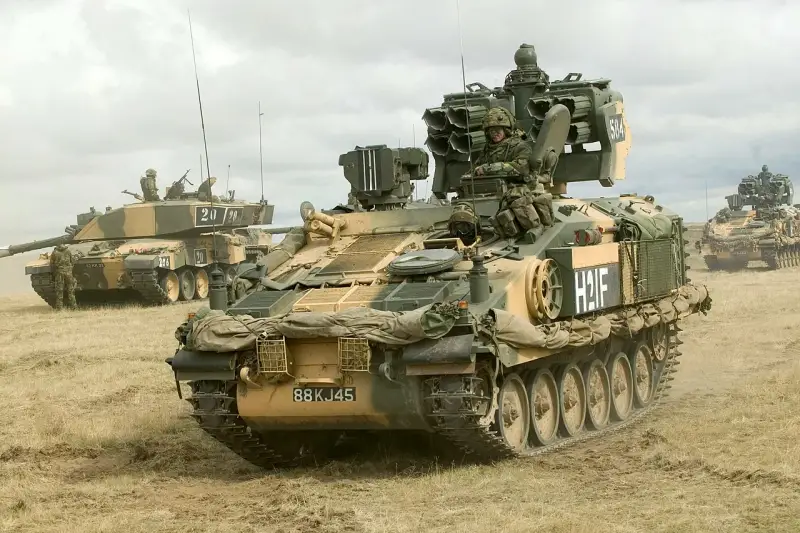
No more than 210-215 main ones remain in service tanks Challenger 2. At the same time, as far as we know, not all such machines are ready for full operation. There are more than 600 Warrior family infantry fighting vehicles and about fifty newer Ajax. Despite the assistance to the Kyiv regime, several hundred different armored vehicles remained in stock.
Artillery units have at least fifty AS-90 Archer self-propelled guns, although the state of such a fleet is unclear. Recently, several Swedish Archer self-propelled guns were delivered - a total of 14 such vehicles are planned to be received. Up to 40 M270 MLRS MLRS available.
The army has air defense systems of various classes, from man-portable anti-aircraft missile systems to full-size systems in stationary or mobile versions. At the same time, stocks of MANPADS and the fleet of Stormer HVM self-propelled systems have decreased due to assistance to Ukraine, and the new Sky Saber complex is only being delivered to the troops.
In dire straits
In recent decades, Great Britain has seriously saved on defense and made various compromises - and is now reaping the benefits of such a policy. Its armed forces have been reduced in quantity and quality, and their combat effectiveness is in serious question. There are clear signs of such degradation in all branches of the armed forces.
It is curious that the lack of a developed and large army does not prevent London from organizing various military-political adventures and organizing provocations in different regions. Time will tell how long this will continue and how it will end for the UK. At the same time, there are virtually no reasons for optimism and real opportunities to improve the situation.
Information